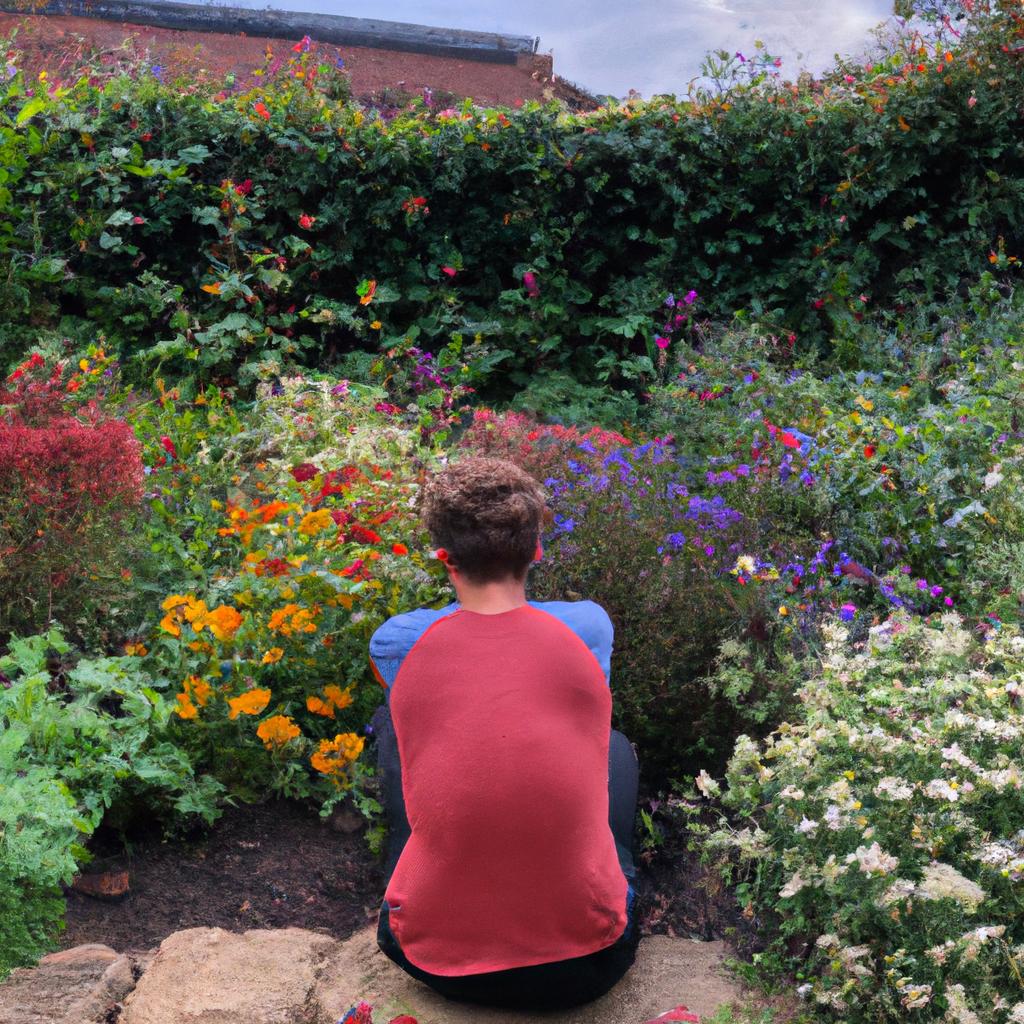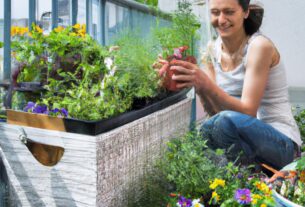Gardening has always been a cherished pastime, but did you know that it holds therapeutic benefits as well? Garden therapy, also known as horticulture therapy, is a practice that utilizes gardening activities to enhance physical, mental, and social well-being. From reducing stress and anxiety to improving cognitive function, the advantages of garden therapy are vast. Let’s explore the profound impact of garden therapy on your overall health and well-being.
Unveiling the Magic of Garden Therapy
Garden therapy encompasses various therapeutic interventions centered around gardening activities. This holistic approach focuses on nurturing an individual’s physical, mental, emotional, and social well-being. What makes garden therapy remarkable is its versatility, as it can be tailored to meet specific needs across different settings like hospitals, rehabilitation centers, and community gardens.
A Glimpse into Garden Therapy’s History
Garden therapy has a rich history dating back to ancient times when gardens were utilized for their medicinal properties. In the 19th century, Dr. Benjamin Rush, one of the founding fathers of the United States, recognized the therapeutic benefits of gardening and advocated for it as a treatment for mental illness. Following the Second World War, garden therapy gained prominence as a rehabilitation tool for war veterans. Today, it is widely acknowledged as a legitimate form of therapy, implemented in various healthcare settings.
Reaping the Benefits of Garden Therapy
Garden therapy provides a host of physical, mental, and social advantages. Here are just a few ways in which it can contribute to your overall well-being:
Physical Benefits
Engaging in gardening is a delightful physical activity that can significantly improve your overall physical health. It enhances flexibility, strength, and endurance, while also improving balance and coordination. Moreover, gardening can aid in weight loss and reduce the risk of chronic diseases such as heart disease and diabetes.
Mental Health Benefits
Studies have demonstrated the positive impact of garden therapy on mental health. It can effectively alleviate stress and anxiety, boost mood, and even enhance cognitive function. Gardening also instills a sense of achievement and purpose, fostering increased self-esteem and self-confidence.
Stay tuned as we delve further into the different types of garden therapy and the techniques employed to make it an enriching experience.
Exploring the Diverse Types of Garden Therapy
Garden therapy encompasses several types, each with its unique goals and techniques. Let’s explore the three main categories of garden therapy:
Horticulture Therapy
Horticulture therapy stands as the most prevalent form of garden therapy. It harnesses the power of plants and gardening activities to promote physical, mental, and social well-being. Designed to cater to specific needs such as mobility improvement or anxiety reduction, horticulture therapy finds its application in hospitals, nursing homes, and rehabilitation centers.
Therapeutic Garden Design
Therapeutic garden design focuses on creating outdoor spaces that facilitate healing, relaxation, and overall well-being. These thoughtfully designed gardens are tailored to meet specific therapeutic goals like stress reduction and increased social interaction. Therapeutic garden design finds its place in diverse settings such as hospitals, schools, and community gardens.
Animal-Assisted Garden Therapy
As the name suggests, animal-assisted garden therapy involves integrating animals, such as dogs or horses, into gardening activities. This type of garden therapy enhances social skills, emotional well-being, and also delivers physical benefits. Schools, rehabilitation centers, and community gardens proudly incorporate animal-assisted garden therapy into their programs.
Techniques That Transcend the Ordinary
Garden therapy employs various techniques to amplify its therapeutic benefits. Here are three common techniques that can elevate your gardening experience:
Mindful Gardening
Mindful gardening involves utilizing gardening activities as a form of meditation. It encourages being present in the moment and engaging your senses to connect with nature. Mindful gardening effectively reduces stress and anxiety, enhances mood, and promotes self-awareness.
Sensory Gardening
Sensory gardening focuses on creating an environment that stimulates your senses – sight, sound, touch, and smell. This approach provides a calming and relaxing setting while improving cognitive function. Sensory gardening can be implemented in hospitals, nursing homes, and schools.
Creative Gardening
Creative gardening fosters self-expression and creativity through gardening activities. It opens up avenues for art projects like painting or sculpture, incorporating elements of nature. By embarking on creative gardening endeavors, you can boost self-esteem, improve cognitive function, and develop social skills.
Garden Therapy Programs and Settings
Garden therapy transcends traditional boundaries and finds its place in a variety of settings. From hospitals and healthcare facilities to community gardens and urban farms, here are just a few examples of where garden therapy thrives:
Hospitals and Healthcare Facilities
In hospitals and healthcare facilities, garden therapy plays a crucial role in enhancing patient outcomes. It effectively reduces stress and anxiety, elevates mood, and promotes healing. Activities such as planting and caring for indoor plants, designing therapeutic gardens, and creating terrariums are at the forefront of garden therapy programs in these settings.
Rehabilitation Centers
Rehabilitation centers leverage garden therapy to assist patients in their recovery journey from physical and mental health conditions. Garden therapy aids in improving mobility, strength, coordination, and reducing stress and anxiety. Activities like adaptive gardening, horticulture training, and therapeutic garden design are central to the garden therapy programs in rehabilitation centers.
Community Gardens and Urban Farms
Community gardens and urban farms offer opportunities for social connection and improved food security. Here, garden therapy flourishes, allowing individuals to connect with nature while fostering healthier lifestyles. Activities like community garden design, plant propagation, and cooking classes are instrumental in garden therapy programs implemented in these settings.
In conclusion, garden therapy stands as a powerful tool for enhancing physical, mental, and social well-being. Whether you’re starting a small herb garden or designing a therapeutic oasis, the benefits of garden therapy are undeniable. At TooLacks, we are passionate about promoting the transformative power of garden therapy and empowering individuals to connect with nature for improved health and well-being. Join us on this incredible journey by visiting TooLacks.



